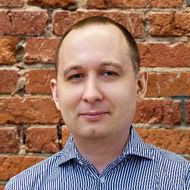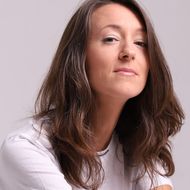Admissions for HSE Doctoral Programmes Now Open

First, educational and research institutions are now entitled to create their own lists of entrance exams. This means that universities now have the opportunity to move beyond the three traditional exams, which included the main subject of studies, philosophy, and foreign language.
Second, personal achievements will now be considered in the admissions. This is important because those who are seriously interested in research usually have some academic and professional achievements by the time they apply to a doctoral programme. Taking such achievements into account is a global practice that is now being applied in Russia as well.
Finally, educational and research institutions now have the right to accept applications and administer entrance exams for doctoral programmes before students earn the previous degree. Enrolment will take place after the degree is received and submitted. Again, this follows the global practice in that leading international universities take applications for their PhD programmes in spring and even winter.
These innovations allowed HSE to make changes in its own regulations for doctoral admissions. Some of the highlights are listed below.
For prospective international students
There are two different ways that international students can apply for doctoral programmes at HSE. This first is as part of the quotas assigned by the Russian Government for international students (these quotas are not part of the general competition for state-funded places). The second is as part of the regular admissions process for fee-paying places.
More opportunities for those who speak foreign languages
The entrance examinations in foreign languages can be held in various forms. The applicants may pass a traditional exam at HSE, or may submit an international certificate confirming a certain level of language proficiency. HSE also offers its prospective students the opportunity to ‘automatically’ pass the foreign language exam; this happens in case applicants studied entirely in English, French, German or Spanish during their previous stage of education (Master’s).
Application and entrance exams take place in two waves
The first application wave (for those who are not eligible for Russian government scholarships) has already started and will last until May 22. The entrance exams for first-wave applicants will take place in June. This means that these students will know whether they’ve been accepted to HSE by July. Those who pass the selection will be required to submit a certificate on the previous degree by July 31.
The second application wave starts on August 1 and lasts until September 15. The exams take place in September and the first half of October. Importantly, the second wave will only take place in the Doctoral Schools that will have open slots after the first wave.
The doctoral schools have the right to accept applications and administer entrance exams not only in person, but also remotely. Applicants can choose the language of exams – Russian or English.
In 2017, HSE is opening a new doctoral school in arts history and design that will enrol only fee-paying students. All the other doctoral schools include state-funded slots, as well as slots that are part of the full-time advanced doctoral programme (with high stipends and well-paid jobs at HSE).
Notably, HSE was the first Russian university to launch the Full-time Advanced Doctoral Programme in 2010. The programme allows high-achieving doctoral students to study full-time and avoid the need to seek employment elsewhere, focusing on their theses and research. Students of the advanced doctoral programme receive a scholarship of 30,000 roubles and, in addition, are employed by the university’s laboratories and research centres.
In 2010, when the Full-time Advanced Doctoral Programme was launched, it involved three faculties: Economics, Sociology, and Management. Starting from 2017, the programme is active in all Doctoral Schools.
Apply for several profiles
In 2017, prospective doctoral students will be able to participate in competitions for different fields at various doctoral schools at the same time. Those who fail to be selected as part of the first wave won’t be able to re-enter the competition in the same field in the second wave.
Two entrance exams
All HSE doctoral schools will accept students as they pass two entrance exams – in a foreign language and in the field of study. The exam in the field of study is complex; it includes both a test of knowledge in the field and a portfolio component consisting of the applicant’s achievements.
The requirements concerning personal achievements have been described specifically for each area of study, and all the details are available on the Doctoral Schools’ websites. Such achievements can include the quality of the degree, publications, presentations at conferences, and experience taking part in research projects. Some of the doctoral schools may require recommendations from relevant professionals.
Qiuyu Gao Yan
China
Qiuyu Gao Yan is currently pursuing his PhD in Political Science. Before coming to HSE, he had a very interdisciplinary academic background: he did his undergraduate in Russian and Economics in Wuhan University, China. He later enrolled in a master programme between University of St. Andrews in Scotland and MGIMO (Moscow State University of International Relations) in Moscow specializing in Sustainable Energy and Management in Energy Sector. He also studied in Oxford University and Harvard University either through exchange programs or summer school.
My grandparents used to study in Soviet Union half a century before, therefore I presume that it is a kind of family tradition. After finishing my double master programme in 2016, I decided to continue my PhD study in Russia, because of my research interest: Sino-Russian relations in a multi-civilizational post bipolar world. The application process was smooth and pleasant. I got full support from both my supervisor and academic secretary in current department. I felt so great when informed that I won the quota competition and was offered the Russian Government Scholarship to study in HSE.
My research area is the evolution of political systems in China and Russia and Sino-Russian Relations in a multi-civilizational post-bipolar world. I got inspiration from my current supervisor, professor Lukin, who is the most well-known sinologist and a senior expert in International Relations. Mentored by Professor Lukin, I found my future career path: to become a prominent expert in Russian studies and I believe that my research in HSE shall serve as a corner stone for my future career.
What I learned in Moscow is that I should not be afraid to communicate with people. At first sight, Russian people seem to be cold, faceless, and “formidable”. However, the more I get to know about Russian culture, the better I understand them: it is Russian tradition to be serious. I try to speak to these “serious people”, I found that they are actually quite nice and helpful just like everybody else.
Two sentences from some of my favorite soviet movies: “Moscow does not believe in tears”; and “Happiness or sadness, whether you like it or not, life is never boring in Moscow”.
Robert Augustus Peters
USA
Robert received his Bachelor's in International and Area Studies at Washington University in St. Louis, Missouri, USA, and Master's in Russian and Eurasian Studies at the European University in St. Petersburg.
In comparison to American universities, which tend to figuratively hold your hand throughout your studies, students at Russian universities such as the HSE have to take a lot more responsibility in figuring out what they need to do and by when. The way of thinking and analysis differs as well, so it takes some time and effort to adjust.
If you're interested in focusing on Russia and the former Soviet republics, the HSE is a great place to do so. You have access to resources, professors and a breadth of knowledge that you won't have if you focus on the region at a university based outside of it.
Naturally, the most difficult thing is handling culture shock, although Moscow is an international city so it's not the toughest place in the world to get used to. A sense of humor and an abundance of patience go a long way here.
Deng Junzhi
China
Deng Junzhi has a Bachelor’s in Russian language and Russian literature from Minzu University of China and a Master’s in Financial Management from State University of Management.
During my undergraduate experience I was fortunate to be able to audit several economic courses at the Peking University taught by remarkable professors. These classes not only introduced me to new economic concepts and theories, but also broadened my perspective and gave me new insights into the depth of my field. I also received a very solid foundation in Mathematics, which can support me to do some economic researches. I was most intrigued by financial management and risk profile, which were linked closely with the success of enterprise financial management. Then I was sponsored by Chinese Scholarship Commit to continue my studies in Russia.
As a foreign student, I passed perfectly all examinations. During my Master’s studies I developed a strong interest in Economics. In March 2016 I participated in the international scientific-practical conference of young scientists "World in Modern Conditions: Challenges, search for points of growth and opportunity," published an academic paper on the topic "Trade and economic cooperation between Russia and China on the background of the Silk Road Economic Belt." At the same time, I worked as a financial analyst at ICBC in Moscow, where I have gained experiences in analyzing financial statements, asset quality and risk resistance of different companies. During my work at ICBC, enterprises financial management has long been a passion of mine, particularly the field of mergers and acquisitions. For over a year I was meeting with financial analysts in the M&A field, learning that the vocation requires a strong mathematical background as well as sound analytical ability. I read avidly about mergers and acquisitions in The Wall Street Journal, the Financial Times and the Economist. The structuring of deals fascinates me. China is so far the top acquirer of foreign companies in 2016, which impels me to put my academic interest on M&A. So I decided to choose corporate finance, M&A and value based management in knowledge economy as my professional interests.
I choose one of the best universities in economics - Higher School of Economics (HSE) to continue my research in that field. In the end of May 2016, I applied to the Doctoral Programme and soon I got a good news that I was accepted by HSE on a Russian government scholarship. My supervisor Pr. Irina V.Ivashkovskaya has inspired me a lot and has given me a lot of encouragement. I am really impressed with her leadership, superior knowledge and vision. She is an expert in corporate finance and has a rich experience in academic field. She’s been the heart and soul of Department of Finance for a couple of years, combining exemplary professional skills with a sweet nature and gentle disposition. I'm so glad to be her PhD student and to have the opportunity to work with all wonderful colleagues – Maria Kokoreva and Anastasia Stepanova, among others
HSE is an international place, where I can learn not only about studying, but also about life. HSE provides me with a unique, interdisciplinary PhD programme that encourages me to explore and solve complex academic problems. HSE is a university of mix cultures, which creates a uniquely diverse academic and social environment for those who study with interest, and the sheer number of different viewpoints makes for endlessly interesting academic discussions.





